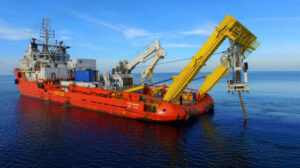The Greek-Turkish rapprochement process is moving within a framework of step-by-step efforts to maintain a calm climate and manage issues that could provoke tensions in the immediate future. Naturally, the significant distance separating the two countries on the major issue of maritime delimitation defines both the framework and the limits of this challenging undertaking.
In recent meetings between the Greek Foreign Minister Giorgos Gerapetritis and his Turkish counterpart Hakan Fidan, as well as between Deputy Foreign Ministers Alexandra Papadopoulou and Mehmet Kemal Bozay, Athens has observed that Turkey, while remaining firm in its positions, appears inclined to maintain a calm climate due to the broader international context.
With all fronts open and uncertainty in Syria, Turkey’s top national security priority intensifies following Assad’s overthrow. It is estimated that Ankara does not wish to open a new front with Greece, which would have severe repercussions on its relations with the EU and Washington—especially at the start of Donald Trump’s new term.
Nevertheless, this does not mean that Turkey will stop reacting, often asymmetrically, to every assertion of Greece’s sovereign rights and responsibilities, which it perceives as an attempt to impose faits accomplis against its “Blue Homeland.” With preparations underway for the Supreme Cooperation Council meeting, likely in February, Greece will need to navigate emerging challenges.
The Marine Parks
The establishment of Marine Parks in the Ionian and Aegean Seas is in its final stages. The planning has been completed, pending approval by the political leadership with any necessary adjustments before the related Presidential Decrees are signed. The process has a timeline extending into early 2025 but will likely conclude after the Supreme Cooperation Council meeting in Ankara to avoid disturbances beforehand.
According to sources, the two Marine Parks do not have a uniform structure. They encompass areas exclusively within territorial waters and primarily involve small islands and islets, some of which Turkey unlawfully includes in its so-called “gray zones” (e.g., Syrna, Avgo, Zafora, Kandelousa, Levitha).
It should be noted that when the Marine Parks were initially announced in April, Turkey reacted strongly. On April 9, 2024, its Ministry of Foreign Affairs issued a statement advising Greece not to entangle pending Aegean issues or disputes over islands, islets, and rocks whose sovereignty has not been ceded to Greece under international treaties, into its agenda.
The claims were categorically rejected by both the Greek Ministry of Foreign Affairs and Prime Minister Kyriakos Mitsotakis, who stated that the Marine Parks would proceed as planned.
According to sources, Greece has also completed its Maritime Spatial Planning (MSP) and informed the European Commission, as the relevant deadline expired in 2021. The MSP awaits final comments from the political leadership before being officially submitted.

The MSP raises several dilemmas, especially given Turkey’s strong objections to the map accompanying Greece’s profile on the European Commission’s website. This map depicts the Aegean with potential 12 nautical miles of territorial waters, Greece’s declared Exclusive Economic Zones (EEZs) under agreements with Italy and Egypt, and the EEZs described in the Maniatis amendment (defining the median line as the outer boundary in the absence of delimitation agreements).
The Submarine Cable
Meanwhile, the “cat-and-mouse” game continues over surveys for the submarine electricity cable connecting Cyprus and Crete. A series of NAVTEX alerts issued by the Heraklion Station cover areas south of Kasos but remain within Greek territorial waters.
During discussions between Gerapetritis and Fidan, it was emphasized that restraint is necessary and that militarization of disputes with apparent divergences, such as cable-laying activities, should be avoided. These fall under freedoms provided by international maritime law.
Despite discussions, Turkey’s actions, such as sending warships in July or monitoring the operations of “Ievoli Relume” within Greek territorial waters, indicate unresolved tensions.
The Minor Agenda
Athens, acknowledging the difficulty of addressing major issues, believes it can test the goodwill sought by Turkey on lingering matters.
One issue is the long-standing delay in granting a permit for constructing a new Greek Embassy in Ankara, on land donated by Kemal Ataturk himself. The land has been under Greek ownership since 1938, but Turkey has yet to facilitate construction.
Another matter is expediting procedures for acquiring a new building for the Greek Consulate General in Istanbul. The current building is too small and inadequate for operational needs, such as maintaining visa archives for tens of thousands of Turkish citizens.
Athens has focused on acquiring the historic and iconic building of Istanbul’s Central Girls’ School, unused for 35 years. The building has been reclassified as a commercial property and is awaiting sale.
Greece has also raised several issues concerning the Greek minority in Istanbul, including allowing members to serve on more than two charitable boards to address staffing shortages due to minority shrinkage. Resolving inheritance disputes remains a major challenge.
The Minority Issue
Turkey insists on raising “minority” issues in Thrace, focusing on education and recognizing self-styled muftis.
Regarding allegations of selective closures of minority schools, Greece has presented data showing closures are due to a lack of students. Measures under review aim to rationalize the system without undermining minority education.
Preparations are also underway to implement the new law on Muftis, starting with the election of a mufti in Didymoteicho, where a single candidate will be chosen through the prescribed electoral process.
Ask me anything
Explore related questions





